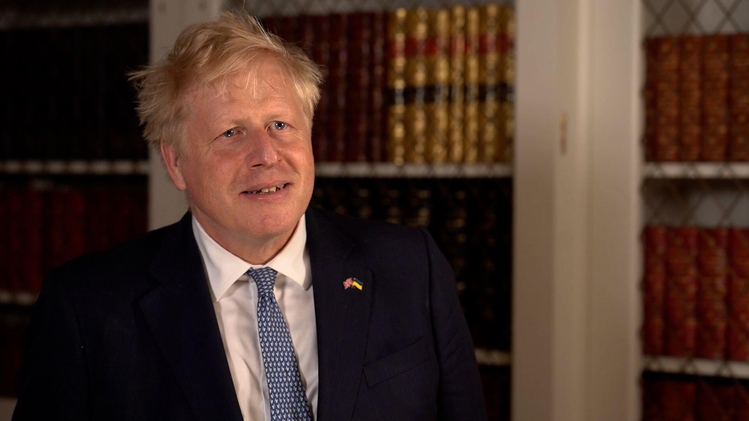Boris Johnson scraped to victory in last night’s vote of no confidence, following months of speculation regarding his backing among his own MPs.
211 (almost 59 per cent) MPs voted in favour of keeping him in No 10, while 148 (around 41 per cent) voted to oust him.
But while Johnson ultimately won yesterday’s vote, he has performed worse than several previous Conservative leaders whose reputation never recovered from the challenge posed by their MPs.
We have thus considered some of the options that could lie ahead for Johnson.


-
1. Johnson steps down
Johnson has made clear that he has no intention of going anywhere anytime soon.
Speaking to Sky News after last night’s win, the prime minister even seemed to suggest his position has improved given that he was supported by almost 60 per cent of Conservative MPs compared to 51 per cent in the 2019 leadership election,
However many MPs continue to call for him to step down, and others could soon join their call.
In 2018, Theresa May won a vote of no confidence with the backing of 63 per cent of her MPs.
However, she resigned in June 2019 after the 1922 committee warned of a rule change to permit a fresh no-confidence vote.
Under the same system in 1995 John Major was backed by 66 per cent of his MPs in a leadership race he contested following his resignation.
Under previous voting rules, Margaret Thatcher was backed by 54 per cent of her MPs in 1990 prior to her resignation as PM, with around 40 per cent voting against her and 4.3 per cent abstaining.
While many MPs’ complaints regarding the PM centre on his personal reputation rather than his legislative agenda- as with May’s Brexit plans- his future is far from certain.
If Johnson announced his intention to step down he would be permitted to remain in post while a new leader is voted on by Conservative party members.
If he chose to step down immediately an interim PM, likely deputy PM Dominic Raab, would need to be selected.
Defence secretary Ben Wallace is currently the most popular minister among the Tory grassroots, sitting at 80 per cent favourability according to the latest Conservative Home polling.
Foreign secretary Liz Truss is runner up at 67 pc while Nadhim Zahawi trails slightly behind her on 65.
Trade minister Penny Mordaunt is also said to be on leadership manoeuvres, as are former health secretary Jeremy Hunt and foreign affairs select committee chair Tom Tugendhat.
-
2. 1922 Committee initiate new contest-Johnson loses
Under the 1922 committee’s current rules, Johnson’s victory in yesterday’s vote means he cannot face a vote of no confidence for another year.
However new rules could be rolled out if the tide is seen to shift among MPs.
While the rules surrounding the “no confidence” process are not published in the public domain, the Institute of Government says the rules can be changed at any time by the executive of the 1922 committee in consultation with the Conservative Party board.
At first glance, the executive offices of the 1922 committee appear populated by MPs such as William Wragg, Nus Ghani, Gary Sambrook, and Sir Geoffrey Clifton-Brown, who all have issued stark criticisms of Boris Johnson.
The Conservatives will soon face two byelections, in Wakefield and Tiverton and Honiton respectively, on 23 June.
Lacklustre results in these seats could prompt further complaints from Conservative MPs, laying the groundwork for possible rule changes and the threat of a further no-confidence vote.
Ministerial resignations, which some sources suggest are on the horizon, could also diminish Johnson’s chances of regaining backbench backing.
Should a future no-confidence vote be lost by the prime minister, a leadership contest will henceforth be triggered, which Johnson would be barred from.
-
3. Johnson calls a snap election
Speaking with Sky News just moments after yesterday’s results were announced by Sir Graham Brady, Johnson stressed that he was “certainly not interested in snap elections”.
However British voters would be right to take his claims with a pinch of salt, given that back in April 2017 Theresa May announced a snap election would take place in June, after months of arguing that an election would provoke chaos at a time of political uncertainty.
Just last week Bloomberg reported that two Conservative MPs had divulged how the idea of seeking a new mandate from voters following a no-confidence vote was “being openly discussed by lawmakers”.
In order for an early general election to go ahead, two-thirds of MPs (at least 434 out of 650) would need to back the plans.
A Savanta ComRes poll released last week put Labour up 2 points to 42 per cent, with Johnson’s Conservatives down three points on 31 per cent.
Based on current estimates this polling would translate to a 24-seat majority for Labour should a general election be called.
With the risk of losing so many seats on the cards, calling an early election is likely to be the last resort for Johnson and his team.
-
4. Johnson stays until 2024
While complex speculations surely account for more interesting reading, it could be that Johnson manages to avert further concern from his own MPs, clinging on as leader until the next general election set to be held on 2 May 2024.
With soaring prices, war in Ukraine and Sir Keir Starmer vowing to resign should he be fined for breaking Covid rules at a 2021 gathering in Durham, the shape of the Conservative party is hardly the only factor that remains difficult to predict ahead of the next general election.

